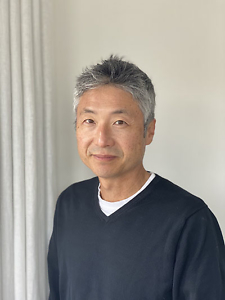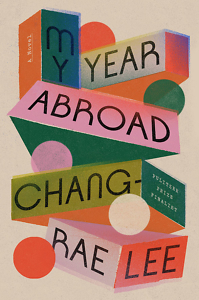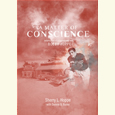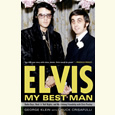A Long, Strange Trip
My Year Abroad traces an ordinary young man’s journey to a weird hell and back
In Chang-rae Lee’s sixth novel, My Year Abroad, we meet the 20-year-old narrator, Tiller Bardmon, in the aftermath of some undisclosed overseas trauma, “freshly adrift … smashed to raw bits by circumstances too peculiar to recount.” But recount them he does, in a nearly 500-page thrill ride of a story, with uneasy straightaways and slow climbs building to zero-gravity plunges and gut-jolting inverted twists.

The calmer sections describe Tiller’s current life in a drab New Jersey town. He’s shacked up with a sexy 30-something named Val (who’s in witness protection thanks to her Uzbek gangster ex) and playing unofficial stepdad to Val’s 8-year-old son Victor Jr., aka “VeeJ.” In the opening pages, Tiller drops hints about the mind-altering experience that has transformed him from an aimless mediocrity into an old-soul college dropout who revels in domestic caregiving and possesses a newfound capacity for heroic action. (He misdirects a sketchy character who’s possibly surveilling Val, then slashes a tire on the man’s car with a fancy Japanese knife — his sole souvenir from the trip abroad.)
“The thing is, I am responsible now, and in a way I never imagined I could be,” he says. “Not just by taking care of things, not by way of being the type who’s steady and maintaining, but by understanding the need to alter the moment, whether directly or indirectly, and then decisively doing so, and not worrying about what the future might bring.”
To explain the transformation in full, Tiller’s narration ricochets among scenes of the Before, During, and After: childhood in an upscale Jersey town with a kindhearted but distant single dad; abandonment by his mother; an undistinguished two-year college stint; a dishwashing job; and a brief golf-caddying gig that puts him in the path of Pong Lou, a Chinese-American entrepreneur who changes Tiller’s fortunes forever, for good and ill. Pong is the book’s inciting incident, in human form. For reasons that are never clear, he takes a shine to Tiller and decides the young man’s talents are indispensable to a scheme he’s cooked up to market Indonesian wellness elixirs to yoga studios in Asia. Tiller is unaware of any such talents — to that point, his abiding trait has been go-with-the-flow amenability. But a chaotic series of escapades in Hawaii, Macau, and Shenzhen, China, reveal previously unknown aptitudes, from gutsy surfing moves to a knack for karaoke.
 The escalating weirdness of this supposed marketing junket, as well as his growing attachment to Pong, begin to desensitize Tiller’s internal alarm system and skew his moral compass. He abandons plans to resume his studies and follows Pong into increasingly debauched revelries and a spiraling peril he fails to recognize, despite many excellent clues. I won’t reveal the adventure’s bizarre denouement, but let’s just say it’s a mental sensory overload that cannot be unseen, unsmelled, or untasted.
The escalating weirdness of this supposed marketing junket, as well as his growing attachment to Pong, begin to desensitize Tiller’s internal alarm system and skew his moral compass. He abandons plans to resume his studies and follows Pong into increasingly debauched revelries and a spiraling peril he fails to recognize, despite many excellent clues. I won’t reveal the adventure’s bizarre denouement, but let’s just say it’s a mental sensory overload that cannot be unseen, unsmelled, or untasted.
Along the way, Lee spins numerous diverting narrative tangents decorated with his spirited maximalist prose, like a linguistic-savant carnival barker conning you into buying a ticket to a sideshow attraction you actually end up loving. Pong’s backstory feels like a standalone biography inside the novel. His family’s history of persecution by Chinese Cultural Revolution zealots and his own emergence as an American magnate with a borrowed identity are weightier in tone than Tiller’s exuberant coming-of-age tale. But the two pair well as opposing stories of identity and reinvention. Pong’s is a rags-to-riches tale of a penniless Chinese immigrant who wholeheartedly adopts American zero-sum consumer culture, whereas Tiller goes, in a few short weeks, from a privileged American slacker of fractional Asian heritage to an invisible cog in the bowels of an exploitative labor scheme. It’s a sort of ethno-cultural role reversal that satirizes the perils of global capitalism and illuminates how the game of moneymaking can disrupt our own moral compasses, as individuals and societies, to the great detriment of an otherwise lovely planet.
These lessons may have come late for Pong, but his parting gift to his accidental young mentee is a hard-won piece of wisdom: A rich life isn’t about satisfying appetites; it’s about treasuring time with one’s beloved people and being useful to them. And all experiences, from the prosaic to the painful, can become key ingredients. In scenes of Tiller’s “after” life, what he craves most is not only within reach, it’s happening in real time: shooting hoops with VeeJ; cooking dinner for the three of them — from a recipe he picked up in Macau, at great personal cost; sowing seeds with Val and VeeJ in a newly tilled garden. “I want to keep us planting and not worrying about a harvest,” he says. “Let it jungle. The bounty is here already.”

Kim Green is a Nashville writer and public radio producer, a licensed pilot and flight instructor, and the editor of PursuitMag, a magazine for private investigators.


